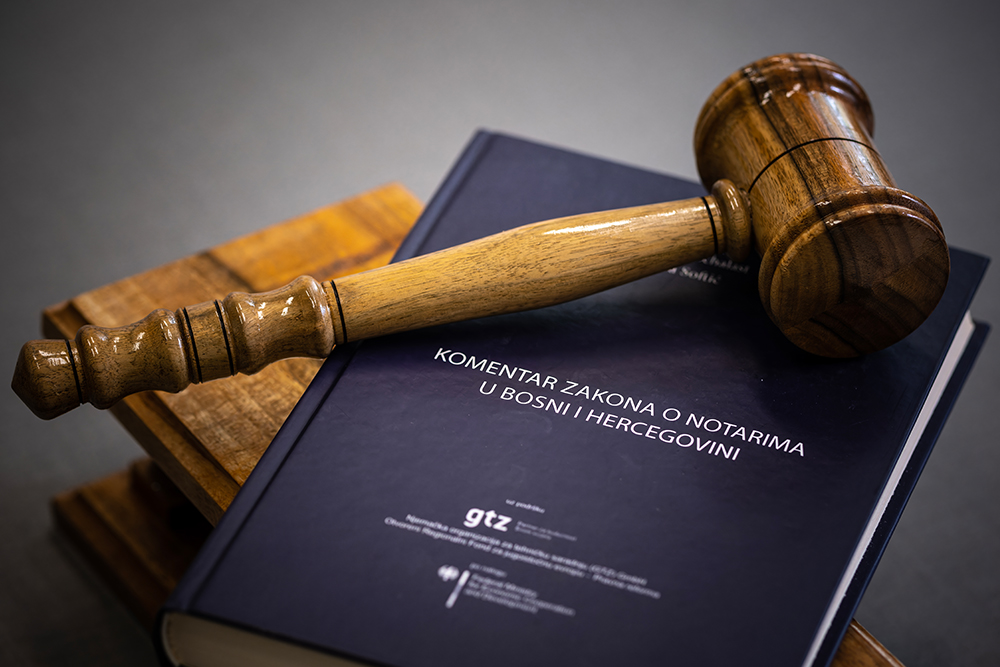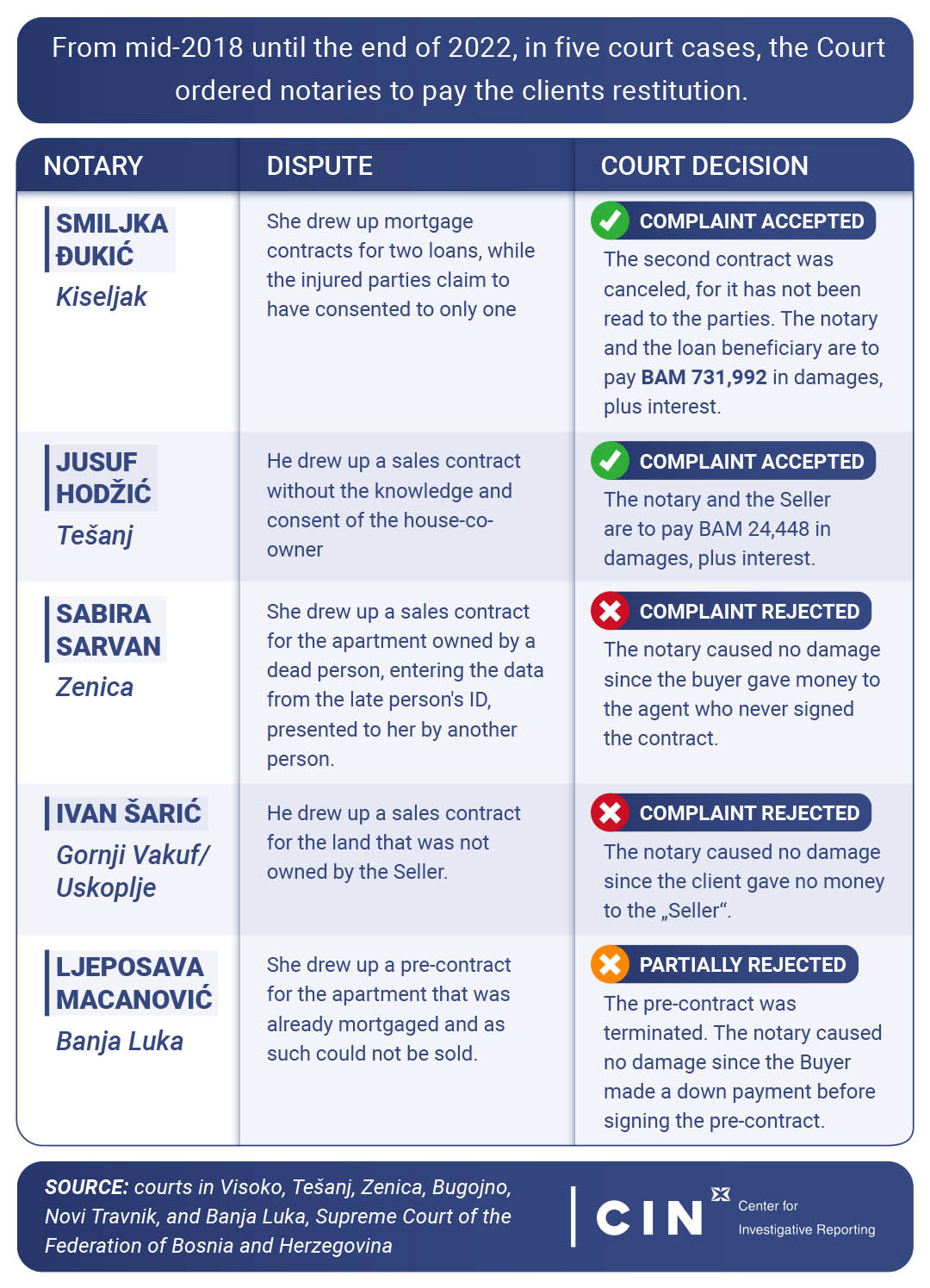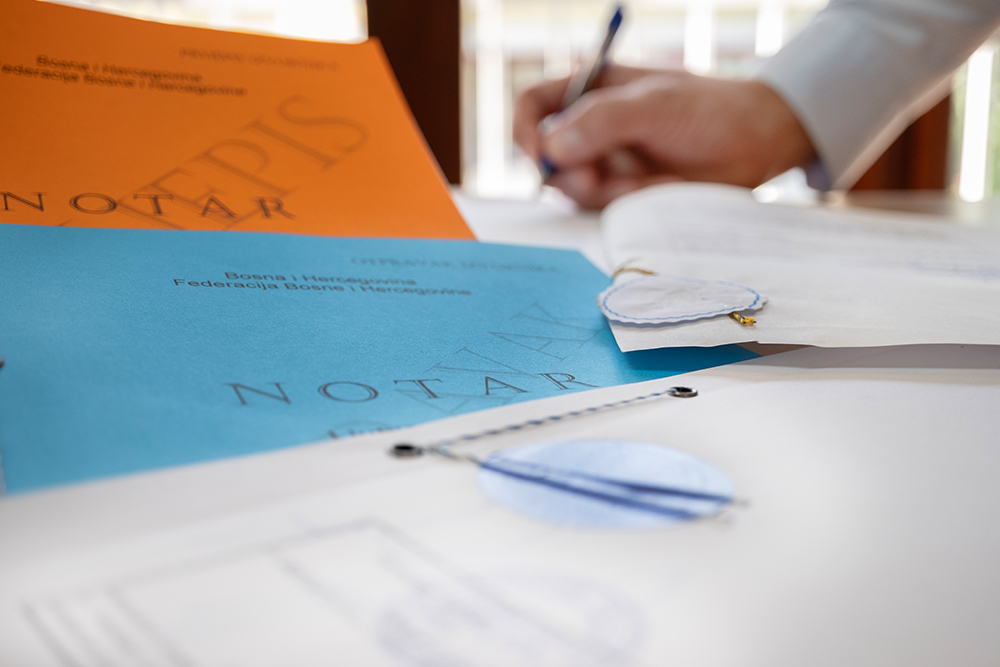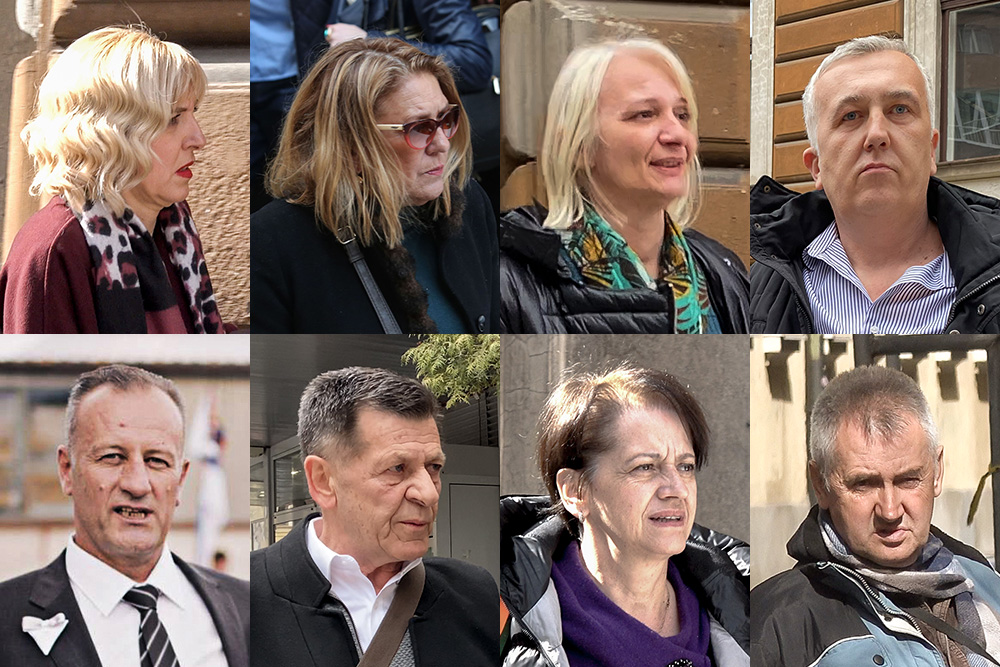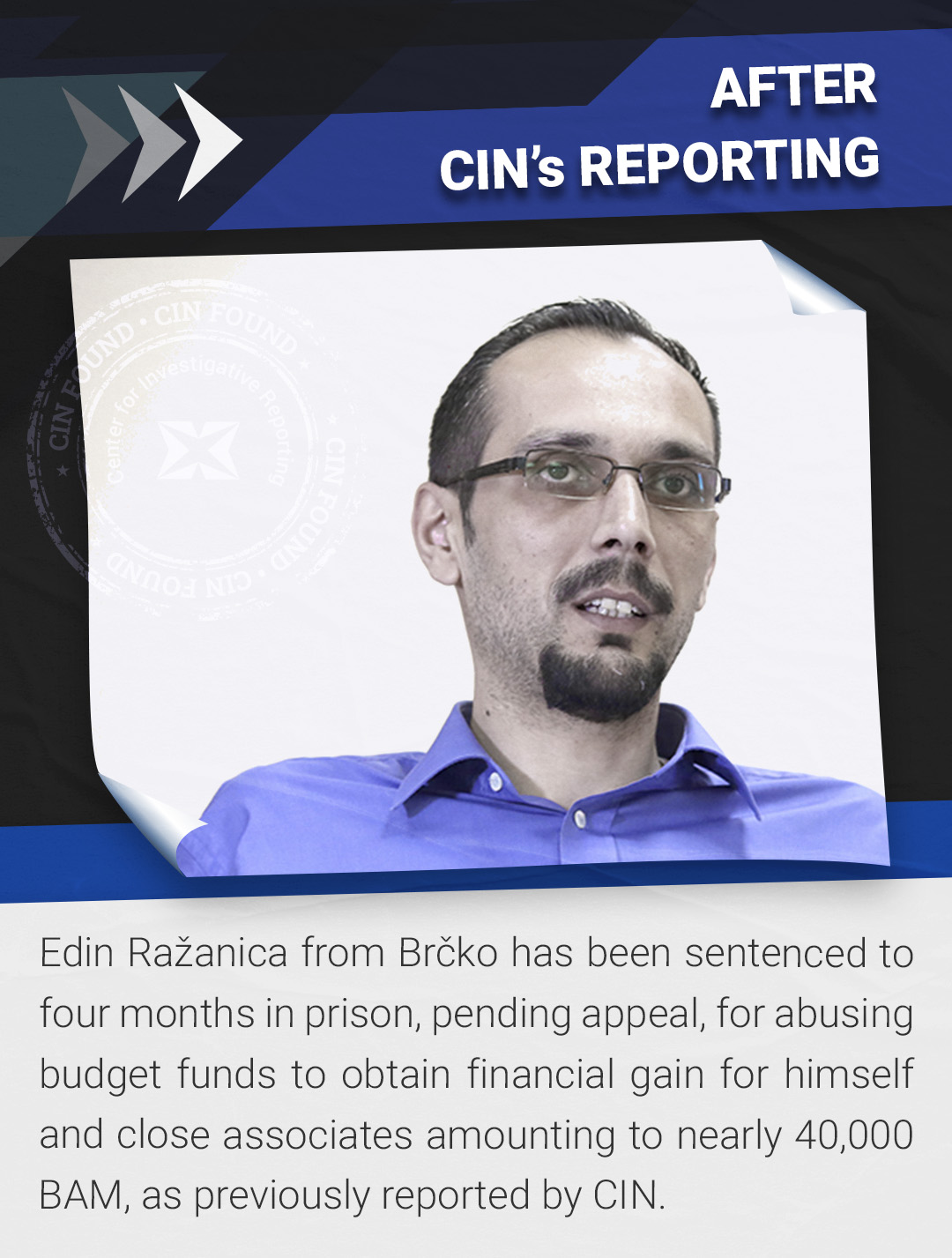In November 2021, notary Smiljka Đukić donated the properties she had acquired over the years. The house, three apartments, two garages, business premises, and land in Kiseljak became the property of her daughters, while she was formally left with almost no assets. She thus reduced the possibility for the FBiH Supreme Court to enforce its decision rendered a month earlier awarding nearly a million BAM in damages she caused to her clients.
In five completed cases from mid-2018 to the end of 2022, the court ruled twice that notaries must pay damages. The process is long and complicated because clients have to prove in court that they suffered damage solely by a notary’s mistake, and even when they succeed, notaries look for ways to delay or avoid payment.
“Ordinary people who don’t understand what and when they need to do something actually come up short”, says Sarajevo lawyer Nedim Ademović.
A life-changing visit to the notary
In 2008, Adnan Nazifović worked in the furniture production company Blue Star in Kiseljak. The business was going well, so he agreed to mortgage his family home and help his employer Marinko Tuka get a 100,000 BAM loan for the company.
At the beginning of the year, Nazifović went with his wife Hidajeta and Tuka to the notary Smiljka Đukić in Kiseljak to draw up a mortgage contract. He says this visit cost them their marriage and property.
“It is unspeakable”, described Adnan Nazifović his experience in three words.
Three years later, the court informed the Nazifović family that the mortgage was activated because Blue Star was defaulting and that their home was for sale in order to pay back the loan debts of 100,000 and 300,000 marks to the bank. Adnan and Hidajeta only then learned that they had signed two mortgage contracts in Smiljka Đukić’s notary office instead of one, as agreed with Tuka.
“You trust the people, you trust the institution, the notary is an institution,” says Nazifović for CIN.
It turned out that both mortgage contracts for loans were secured by the same real estate: their house and yard in Visoko and Tuka’s property near Kiseljak, which was already mortgaged.
Nazifović claims that the notary did not read any of it when signing.

In the middle of 2013, their house was forfeited by Hypo Alpe Adria bank, and they started a long legal battle for indemnification. “This was a source of enormous stress”, says Nazifović.
In court, they demanded that the second mortgage contract be canceled because they didn’t even know about it. They asked that their house be returned to them or to be paid 487,995 BAM in damages, which is the appraised value of the property.
The expert graphologist stated in his report that the contracts contained many typographical and grammatical errors that must not be in official documents and that it seems as if the two documents were not made by the same person or were not created at the same time. He explained that this could be the result of poor concentration by the author of the document or a deliberate mistake intended to mislead the co-debtor.
Đukić said in court that she prepared one contract earlier, and the second contract in front of the parties and that she read everything out loud in front of them, although she indicated in the contract that they waived the right to have the content read to them.
Precisely because of this remark, the FBiH Supreme Court ruled in favor of Nazifović in October 2021, concluding that the parties cannot relieve the notary from the obligation to read the documents out loud, which is why the contract is rendered null and void.
However, since the enforcement procedure had already been carried out, the Nazifović couple could not return their house, hence the court ruled that Đukić, Tuka, and his company Blue Star must pay them damages of 732 thousand marks, which together with interest makes nearly a million BAM.
“I was at work when I got a message. I almost had a heart attack and died. The message said: ‘We won [the case] before the Supreme Court.’ It took me an hour or an hour and a half to put myself together”, Nazifović recalls the day when lawyer Sanela Gorčić gave him the news he had been waiting for almost four years. However, he is still waiting for the payment of damages.
A month after the verdict, the notary transferred her real estate to her daughters and thus reduced the possibility of enforcing the verdict of the FBIH Supreme Court against her property.
Lawyer Gorčić filed a lawsuit against her.
“Under the Obligations Law, a person who is in a pending debt may not reduce its assets in such a way that he/she cannot repay his/her debt, and the notary did exactly that because immediately after the verdict of the FBiH Supreme Court, she gave all real estate as a gift to her daughters leaving none in her own name other than a 2-3 thousand BAM worth agricultural plot in some village,“ explained Gorčić.
Đukić allegedly did not know about the verdict when she made the contract the family allegedly had agreed on earlier.
Nazifović unsuccessfully requested the annulment of that document. The Kiseljak Municipal Court held that there is no legal obstacle to gifting property to the heirs and that the damage can be paid in cash from the account and the notary’s insurance policy.
By April 2023, around BAM 200,000 were seized from her account, and the Nazifović family had to file another case for the collection against her insurance policy since Euroherc refused to pay the money, claiming that they have nothing to do with the case.
Đukić resigned from the notary service at the end of May. She told CIN reporters that she is retired. Today she is 62, and under the law, she could have worked as a notary for another eight years. When asked by a CIN reporter if she was avoiding the payment of damages to Nazifović in this way, she replied: “No, not at all! I qualified for retirement.”
Nazifović will not be able to get money from Marinko Tuka either since the bank has forfeited his house and his company Blue Star is no longer working, and he has no other assets: “They can neither collect against me nor can they send me to prison.”
Tuka claims that Nazifović knew how much credit he was taking and that he gave him money in return for pledging the property. He offered no evidence for these claims, but he claims to have witnesses.
Among them is a man whom Tuka was convicted with at the Court of Bosnia and Herzegovina for organized crime, tax evasion, and loan-related fraud in another case that has nothing to do with Nazifović.
The Nazifović family could not withstand the stress. Faced with poverty and homelessness, they went their separate ways. Hidayeta stayed in Visoko, and Adnan moved to Tuzla.
“The same topic every day. Nothing else happened in our life, just ugly things. One keeps talking about the same thing. When will it happen, what will happen, when is the hearing, what’s the deadline for this or that? It all came down to that discussion, and probably that’s how we parted,” says Nazifović.
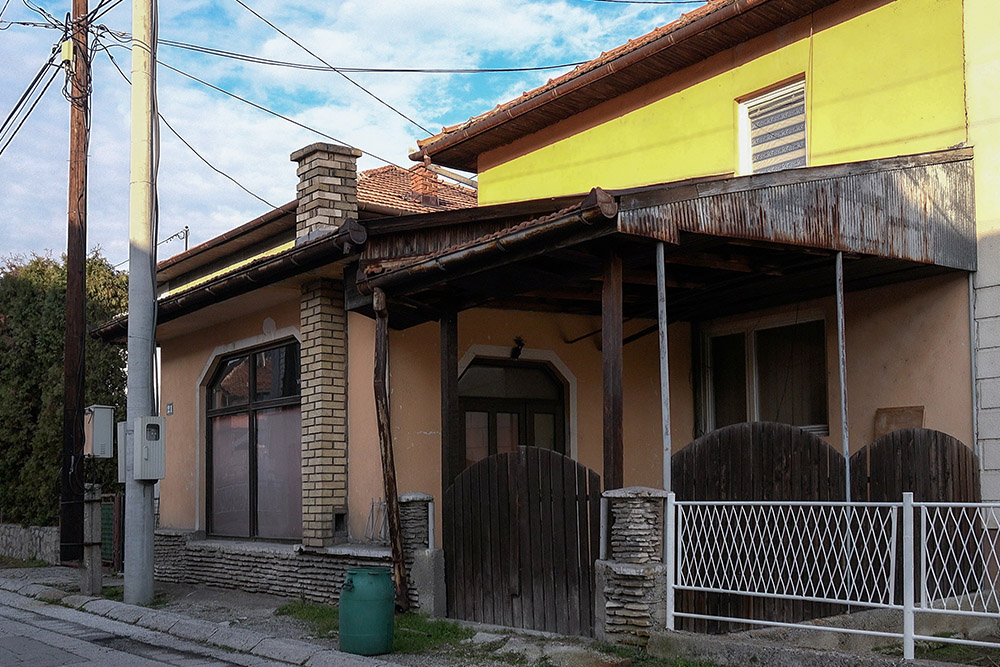
A contract concluded with a dead woman
Mirza Drinić from Zenica says that he no longer goes anywhere without a lawyer.
In September 2008, he agreed with his acquaintance Gordana Todorović to buy an apartment. The little apartment in the Crkvice settlement in Zenica belonged to her aunt Marija Tolić.
Drinić says that they signed a sales contract for BAM 30,000 with the notary Sabira Sarvan, who wrote down in the contract that the money was paid, and the identities of the seller and buyer were determined based on their identity cards.
However, Drinić will soon learn that Marija Tolić died three months earlier. His acquaintance Gordana actually came to the notary’s office with her mother-in-law Gospava Todorović, who assumed the identity of the deceased woman for the purpose of this transaction.
“She (Gordana Todorović, author’s note) introduced her mother-in-law as her aunt and presented the identity card of her deceased aunt, which I did not know at the time,” says Drinić, who held the notary accountable for this, which is why he tried to collect the damage against her and her insurance policy.
In court, he claimed that notary Sarvan made an official document with incorrect information thus causing him harm. While the notary is required under the law to determine the identity of the clients, Sarvan said in court that it is impossible to determine the authenticity of the ID card, and whether the person on the photo is the same person sitting in front of them or if the signatures in the client’s documents are the same, adding that she was not obliged to check whether the person is registered in the register of the dead.
Sarvan is now retired and does not want to discuss the case: “I am done with it and I closed that chapter.”
After nine years of trials from the Municipal Court in Zenica all way to the Constitutional Court of BiH, in June 2018 Drinić finally lost the case. The verdict says that the notary Sarvan made an omission but she is not liable for damage because Drinić gave the money to Gordana Todorović, and not to her mother-in-law, who impersonated someone else.
Referring to the verdict, Drinić says that the notary “falsely made the entire contract and certified it with her seal” because she wrote that he had given the money to the contract signatory. In addition, he did not understand why the court did not deal with this fact as much as it dealt with his payment:
“Why didn’t it talk about the improper drafting of contracts? Or about a dead woman who came and presented her identity card?”.
Instead of awarding him damages, the court ordered him to pay BAM 10,000 in court expenses.
Payment of damages for the sale of marital property
Out of five proceedings against notaries, their liability for damage was proven in two, but the damages were paid in one case only. Notary Jusuf Hodžić from Tešnj paid about BAM 25,000 in damages with interest, and his client Musto Ćehajić waited for this outcome for two years.
Notary Hodžić drew up a contract in 2014 by which Samir Unkić sold Musta Ćehajić a house in Doboj, which was a marital property. Although Unkić’s wife Simka Alić was a co-owner, the notary failed to indicate in the contract that her consent was required for the sale.
In early 2015, she sued Unkić and Ćehajić, and after two years-long court proceedings, she succeeded in rendering the contract canceled. After that, Ćehajić, who had already paid the money for the purchased house, demanded compensation from Unkić and the notary Hodžić.
Notary Hodžić said he paid for everything: “Everything is fine, it’s finished, the most important thing is that the parties are insured and settled.”
Velibor Čuković from Banja Luka and Nafiz Đogić from Prozor Rama did not have the same experience in their cases. They both lost money in the real estate business, and they held notaries partly responsible for that.
In 2011, Banja Luka notary Ljeposava Macanović drew up a pre-contract for Čurković for the purchase of an apartment that was mortgaged and as such could not be sold, and Ivan Šarić, a notary from Gornji Vakuf/Uskoplje, did the same in February 2017. He drew up a sales contract for Đogić for the land that was not owned by the seller.
Čuković did not succeed in getting the damages because he made a BAM 20,000 down payment before going to the notary, so the court decided that Macanović was not liable for the damage.
Similarly, Đogić lost BAM 50,000 he gave for the land because he gave the money to a person who, according to the contract, is not the seller.
The courts ordered both of them to pay the court expenses.
“I cannot believe that a court can render such a judgment,” says Đogić.
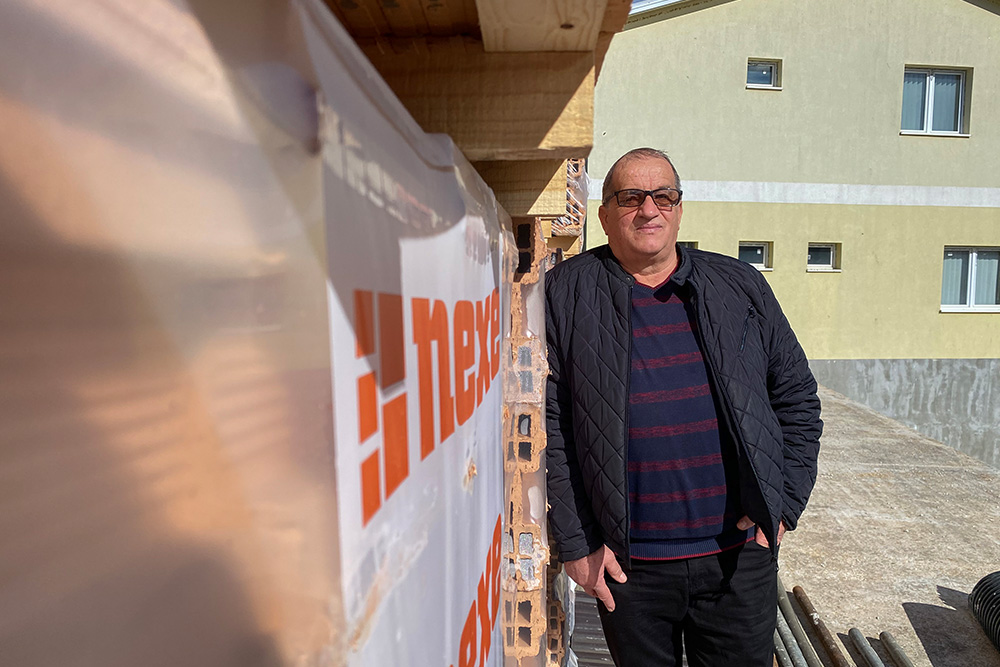
Lawyer Nedim Ademović says that notarial documents are difficult to annul because they have a stronger probative value than documents drawn up by lawyers.
According to him, “judge’s view on this matter – psychologically, emotionally and humanely – is that these documents are valid until proven otherwise”. He also added that proving damage caused by a notary is very difficult.
Professor Meliha Povlakić from the Sarajevo Law School holds that it would be useful for the Chamber of Notaries to keep data on such cases so that it could conduct disciplinary proceedings where needed. However, since courts do not have the obligation to inform the Chambers or the Ministry of Justice about procedures for collecting damages from notaries, they are often unaware of such cases.
Of these five court cases, the Chamber conducted disciplinary proceedings only against notary Macanović. The disciplinary commission banned her from performing notary services for two months, but this decision was later overturned in court.
After the trial, notaries Ljeposava Macanović, Smiljka Đukić, and Ivan Šarić left the service, Sabira Sarvan retired, and Jusuf Hodžić is still working.

